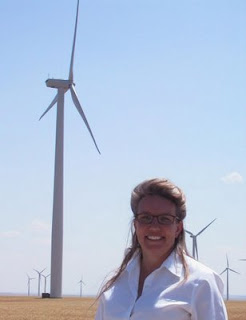Declaration of (Energy) Ideas

 I'm attending the annual meeting of the National Conference of State Legislatures (NCSL), the theme of which is A Declaration of Ideas. In Philadelphia, where our United States' representative Democracy was launched, there continue to be substantive discussions about how to help this great country, state by state.
I'm attending the annual meeting of the National Conference of State Legislatures (NCSL), the theme of which is A Declaration of Ideas. In Philadelphia, where our United States' representative Democracy was launched, there continue to be substantive discussions about how to help this great country, state by state.In many meetings over these first two days, I have represented Montana on the Environment and Agriculture/Energy committees. Yesterday, the discussion was on renewable energy. The NCSL proposes policies formulated, debated, and passed by committees, and our representation to Congress is based upon those policies. In one engaging policy discussion, a representative from Alaska proposed changing the terminology in our NCSL National Energy policy from "renewable" to "clean".
Now, most everyone recognizes and defines renewable energy as that which is gained from a natural system, one that has no by-product or waste from generation, and from a force that is nearly constant, like wind or water. Wind power is generated when wind blows and turns a turbine, creating power for electricity. Hydro power is generated when water flows over a turbine, creating power for electricity. Renewable power is quite fundamentally different from fossil fuel or nuclear power, even those classed as "clean" energy, because fossil or other energies burn a fuel and emit a waste. That's just the process, and the definitions.
In yesterday's meeting, there were plenty of differing opinions about what types of power in which to invest. There are as many different opinions as there are legislators: one proposed that wind and hydro are not renewable. He said, "As soon as that water goes over the dam, that water's gone. As soon as that wind blows by a windmill, that wind is gone. It's gone."
Wow.
That's just completely incorrect. Wind moves on; once it turns the rotors on one wind turbine, it can continue blowing and turn other rotors. Water moves on; once it flows over a turbine, it can flow on, downriver, and turn other turbines. In Montana, there are five dams on 13 miles of the Missouri River; that water serves many purposes, energy generation among them. Water and wind (and solar) are truly renewable sources of energy.
That contrasts with fossil fuel energies, which burn a fuel, like coal or natural gas, and emit a waste--carbon monoxide, carbon dioxide, SoX and NoX gases, heavy metals like mercury, etc. There is intense discussion and research about carbon capture and sequestration, which means to capture carbon emissions from energy generation, compress and pipe the carbon dioxide and other minerals and elements, to dispose of them in deep saline aquifers or in strata underground. But there are concerns over what happens when waste products are introduced to rock, saline, groundwater; it's better to use a truly renewable energy rather than to use one that produces a waste we must then store or neutralize.
Another committee member proposed adding nuclear power, which is included in its own section of the National Energy policy, to the Renewable Energy section. That began the discussion about how we define renewable versus consumptive (my word) energy. Nuclear power most definitely has a waste product, and consumes a fuel; ask any uranium mine about fuel for nuclear power, or any Nevadan about how "renewable" nuclear power is, when their Yucca Mountain has been nominated by eight nuclear-power-producing states to store spent nuclear fuel.
The committee, after discussion and lively debate, did not add nuclear energy to the renewable energy section, and did not change the term "renewable" to "clean". This was just one policy--National Energy Policy--on one afternoon of one meeting. All substantive stuff, and I'm honored to represent Montana among such differing perspectives on so many aspects of our great land.
I know we'll be burning coal and oil and natural gas for some time to come, so let's find the best solutions for carbon capture and disposal. Let's insist that companies use best management practices (BMPs) for efficient energy production, and let's develop and use much more renewable energy to lessen the amount of fossil fuels--and their wastes--in our energy mix.
Regards from Philadelphia, everyone. Wish you were here. The cheesesteaks are fabulous.

